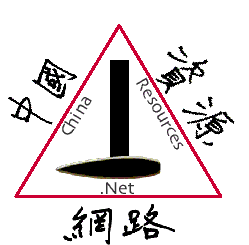





Lindsey V. Maness, Jr., Chairman
Resources & Technology Symposia of Colorado, LLC
12875 West 15th Drive
Golden, CO 80401-3501 USA
Tel: 303-717-1020 E-Mail: LVManess@gmail.com
Possibly due to the severe financial crunch in Asia, many of our colleagues have been forced to seek sponsorships. Any organizations added to this list are possible sources of funding. While rumors abound about agencies offering support, it is impossible to verify many of them. As more possible funding sources are discovered, relevant information will be entered on this web-site. Those interested in these programs should personally verify their eligibility from information on the relevant web-site(s) before directly contacting possible funding sources.
One of the purposes of the CEAR 2,000 Symposium is to provide information to assist private-sector firms to acquire capital and guidance for international business. Consequently, many possible funding organizations are listed herein that might assist firms.
It has been impossible to verify even the availability of many of the rumored funding programs listed. Consequently, an attempt has been made to list organizations, with program names and contact information. This is not to imply that all programs are listed, or even that those listed remain active: it is up to the users of this information to discover that for themselves.
The conventional way to list these would have been in the form of "Organizational Charts". This was not rigorously done because many portions of organizations have totally different programs from the parent, and vice-versa. Further, organizations follow different "styles of operation" that largely determine whether funding or other assistance will actually be made available. The influences that determine whether or not a specific request will be viewed favorably are not easily diagrammed as in an organizational chart. They include: 1. statutory (legal); 2. administrative (by order of a superior); 3. judicial (by order of a court); 4. regulatory ("laws" self-imposed by a bureaucracy); 5. historical (following traditional means); 6. force of personality (will imposed by an individual or by a clique); and 7. others. With these often contradictory influences as the reality, it is usually best to approach each organization separately, even when part of a larger organization.
§
§
§
§
§
§
§
§
§
§
§
§
§
§
§
§
§
§
§
§
§
§
§
§
§
§
§
Embassy of the United States of America
Consular Section, Nonimmigrant Visa Unit, Novinskiy Bul'var 19/21, Moscow, Russia 121099 Fax: 011-7-095-956-4079. Note: The US Embassy cannot fund symposium participants. This information is presented solely for assistance in acquiring visas.
US Agency for International Development (AID), USAID/Russia, E-Mail: ksylvester@usaid.gov. Note: Through the end of 1997, USAID/Russia had obligated just under $1.7 billion US for programs encouraging democracy, human rights and a market-oriented economy.
§
§
§
§
§
§
§
§
§
§
§
§
§
§
§
§
§
§
Export-Import Bank of the United States (Ex-ImBank)
National Oceanic and Atmospheric Administration (NOAA)
Overseas Private Investment Corporation (OPIC)
US Bureau of Land Management (BLM)
United States Department of Agriculture
United States Department of Commerce
Special American Business Internship Training Program "SABIT" Program
Room 3319, 14th & Constitution Ave. NW
Washington, DC 20230 USA
Tel: 202-482-0073 Fax: 202-482-2443
VERY IMPORTANT NOTE: Before directly contacting SABIT, please check the US Department of Commerce's SABIT web-site to verify eligibility and appropriateness: www.mac.doc.gov or www.mac.doc.gov/sabit/sabit.html. The acronym "MAC" is an abbreviation for "Market Access and Compliance," "ITA" for International Trade Administration, "CS" for Commercial Service, "IA" for Import Administration and "TD" for Trade Development.
Comment: The SABIT Program will not be able to sponsor any participants to the CEAR 2,000 Symposium. Only those organizations doing business in the former Soviet Union interested in particular SABIT Programs listed on the SABIT web-site, www.mac.doc.gov, will find this information relevant. The SABIT Program is limited to residents of Russia and newly-independent countries formerly part of the Soviet Union, excluding the Baltic states. Very stringent professional and other standards are followed.
Other US Department of Commerce Programs listed on their web-site, e.g., Russia and Newly Independent States "BISNIS ON/Line," the Central and Eastern Europe Business Information Center, "CEEBICnet," the Trade Compliance Center "TCC," the Office of Japan, and the Market Access and Compliance's EURO Web site, should be referenced for possible governmental funding mechanisms.
Other US Department of Commerce Programs, e.g., the "International Buyers Program," should be evaluated for eligility and suitability by those interested in funding sources.
It is likely that the US Department of Commerce and other governmental agencies, both US and foreign, operate similar programs for other regions of the world, but RTSC has not been able to verify this. RTSC is searching further for possible sources of funding.
RTSC regrets inconveniencing our colleagues and the SABIT managers within the United States Department of Commerce regarding applications for sponsorship to the CEAR 2,000 Symposium.
US Department of Defense (DOD)
US Department of Energy (DOE)
US Environmental Protection Agency (EPA)
US Department of Interior (DOI)
Note: The DOI is listed separately from its branches for reasons listed in the introduction.
US Bureau of Reclamation (BOR)
US Department of Transportation (DOT)
US Geological Survey (USGS)
US Small Business Administration (SBA)
US Trade Development Agency (TDA)
US Department of the Treasury, Internal Revenue Service (IRS)
VERY IMPORTANT NOTE: The IRS FSC applies only to tax deductions for certain types of export income channeled through foreign corporations.
US Information Agency (USIA)
US Trade and Development Agency (TDA)